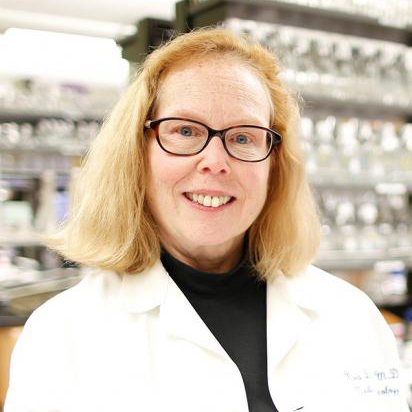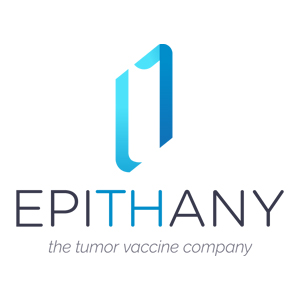Curious about a UW researcher?
Welcome to our blog series, “UW Researcher Spotlight.” These posts highlight University of Washington researchers who, as principal investigator—or “PI”—lead their teams on the path from idea to impact with the support of CoMotion. The resulting innovations have been licensed to industry, spun out as a startup, or licensed direct to the user from within the UW.
Stay tuned for profiles about UW researchers from computer science & engineering, life sciences, emerging tech, social sciences and more.
Meet Nora Disis

Nora Disis, Helen B. Slonaker Endowed Professorship for Cancer Research; Professor, Department of Medicine, Division of Oncology; Director, Tumor Vaccine Medical Oncology

Team:
Denise Cecil, Director, Scientific Services, Cancer Vaccine Institute, UW
Bill Watt, Co-Founder and CEO, EpiThany
David Poston, COO, EpiThany
Where: UW Medicine, Medical Oncology
When did you file your first ROI with CoMotion?
October 2001
Tell us about your innovation – what technologies have you licensed or spun out?
The innovations that we have licensed are novel cancer vaccines targeting commonly expressed cancer proteins. Leveraging decades of translational clinical trial data, we launched a new cancer vaccine platform that only induces a Th1 proinflammatory response. We realized from our translational work that there is a yin-yang relationship between immune Th1 and Th2 cells with respect to tumor antigens. A Th1 response promotes inflammatory tumor destruction, while a Th2 response suppresses this inflammation. This simple principle explains why other cancer vaccines have been unevenly successful for so many years. Many talented and driven people have been working inadvertently on vaccines that create a mixture of Th1 and Th2 responses – in effect, self-defeating vaccines. We built a systematic platform for tumor-specific vaccines that make only Th1 cells and the result has been very gratifying. Our simple Th1 approach is working better in the clinic than technology-heavy approaches costing hundreds of millions of dollars.
What problem does your innovation solve?
Cancer chemotherapy can be toxic, expensive and short-lived in effect. An ideal cancer therapy would be accessible, easily administered and provide durable benefit to the greatest diversity of patients. These are the features people recognize in vaccines – for example, seasonal flu and measles – and our approach to cancer is similar. We envision our cancer vaccines being used in immunotherapies for patients with existing tumors as well as in the prevention of tumors, with a simple and accessible medicine. Across multiple clinical trials in several different cancer types, our vaccines have been consistently well tolerated and immunogenic in a majority of patients.
What impact are you having?
We have conducted several clinical trials of cancer vaccines directed against a variety of antigens. Early data from Phase I and Phase II studies suggest that there is both a progression-free survival and overall survival benefit to vaccination.
What funding have you received?
We have received funding from a variety of sources. Most notably, the DOD Breast Cancer Program awarded us a Transformational Vision Award that resulted in a series of discoveries that changed the way we develop vaccines and allowed us to create platform technology that can identify important epitopes efficiently. We have also been significantly funded by the National Cancer Institute (most specifically for vaccines to prevent the development of cancer), Komen, The Breast Cancer Research Foundation, and the American Cancer Society for vaccine work. These have been our major funders. We have also had significant funding from philanthropy which is the only way we have to manufacture vaccines in the academic setting.
What’s the latest?
We have developed technology that will accelerate the development of treatments for autoimmune disease. We have also identified methods of manipulating the gut microbiome to enhance anti-tumor immunity. Further, it is encouraging that our UW spinout company, EpiThany, recently sublicensed EP-301 (a vaccine from our platform) to a Korea-based company with whom we are collaborating to advance into phase 2 studies in 2021. We will be treating breast cancer and other patients worldwide.

Nora Disis Lab

Bill Watt, Co-Founder and CEO, EpiThany


David Poston, COO EpiThany
Commercialization advice?
Like most difficult things, commitment from everyone involved is crucial. CoMotion has been completely supportive from the beginning as we built our scientific platform and our foundational intellectual property. They connected us with our founding CEO Bill Watt (PhD, UW 2003) and supported the effort to spin out EpiThany, including drafting the key patents and licensing them into the company. We then grew into a core group of leaders including Bill and David Poston, Mike Gallatin and Marty Simonetti — a fantastic group of Seattle biotech veterans. There have been ups and downs, but we’re all still here to see the science be brought to patients, which is usually what catalyzes the commercial activity.
What CoMotion services and resources have you used and how did they help?
In 2013, we started working with CoMotion to draft some new patent applications. CoMotion moved these forward and we all thought it looked so promising that it should be spun out, so they handled the applications and provided financial support for Bill to focus on making a company. We made pitches to some investors at CoMotion events who then became Board members of the new company, EpiThany. From there, CoMotion supported the expansion of the patent family until EpiThany could pay the costs back, which was essential for the company’s ability to engage investors and partners. We had some of our most promising investor pitches in CoMotion conference rooms. CoMotion was supportive and crucial in many ways.
What do you like most about working with CoMotion?
The relationship approach works with CoMotion. It hasn’t been easy trying to commercialize, but we maintained open and regular communication with the CoMotion team and received constant support. People like Fiona Wills, Dennis Hansen, Christine Hurdle, Robyn Adams, Sara Burmeister and others all offered congratulations when we pushed something across the line. In times when things were unsure, they offered help. As we continue to make new science, it’s clear that CoMotion shares our enthusiasm and wants to be part of the journey.
Background and Bio:
Dr. Disis is the Helen B. Slonaker Endowed Professor for Cancer Research at the University of Washington (UW), Associate Dean for Translational Health Sciences in the UW School of Medicine, Professor of Medicine and Adjunct Professor of Pathology and Obstetrics and Gynecology at UW and a Member of the Fred Hutchinson Cancer Research Center. She is also the Director of UW Medicine’s Cancer Vaccine Institute.
A graduate of the University of Nebraska Medical School, Dr. Disis completed an Internal Medicine residency and Chief Residency at the University of Illinois, and completed an oncology fellowship at the UW/FHCRC.
Dr. Disis’ research interest is in the discovery of new molecular immunologic targets in solid tumors for the development of vaccine and cellular therapy for the treatment and prevention of common malignancies. In addition, her group evaluates the use of the immune system to aid in the diagnosis of cancer and develops novel assays and approaches to quantitate and characterize human immunity. She holds several patents in the field of targeted cancer immunotherapy and immune-based diagnostics.
Dr. Disis is a member of the American Society of Clinical Investigation and the Association of American Physicians. She holds a leadership award from the Komen for the Cure Foundation and is an American Cancer Society Clinical Professor. Dr. Disis is also the Editor-in-Chief of JAMA Oncology.
Connect:
Website: depts.washington.edu/tumorvac/
Website: EpiThany
Follow on Twitter: @drndisis
Do you have a great idea? Connect with UW CoMotion
File your Record of Innovation or Request a Consultation with an innovation manager.
Subscribe to our newsletter to stay up to date about programs, resources and events.
About UW CoMotion: CoMotion at the UW is the collaborative innovation hub dedicated to expanding the economic and societal impact of the UW community. By developing and connecting to local and global innovation ecosystems, CoMotion helps innovators achieve the greatest impact from their ideas and discoveries.